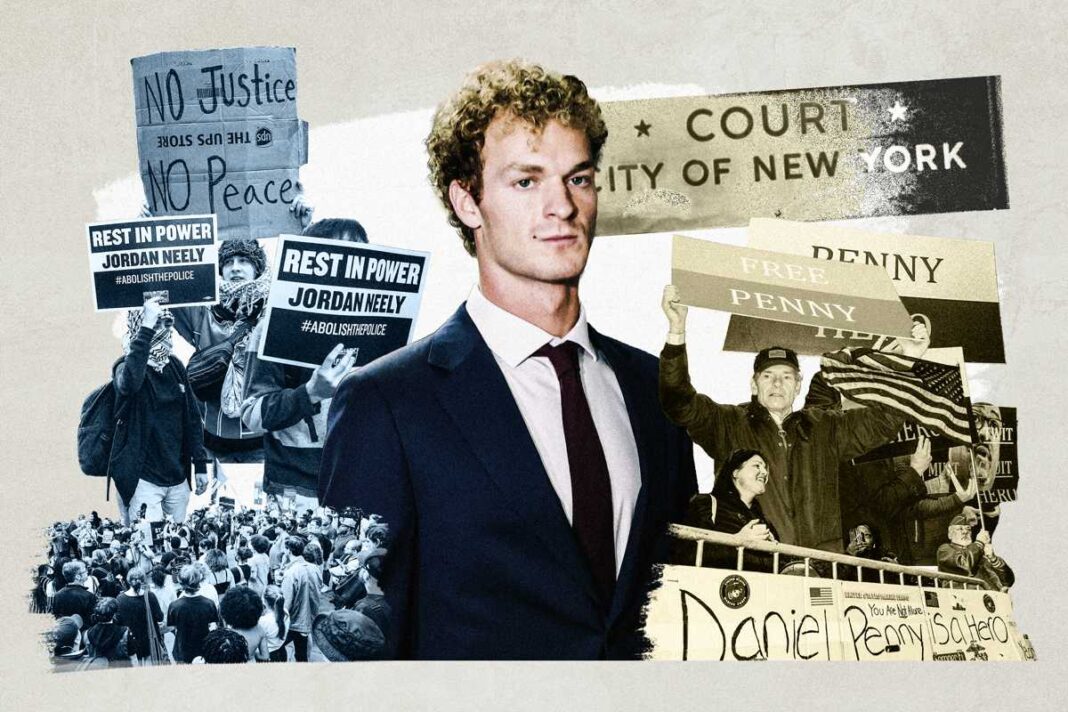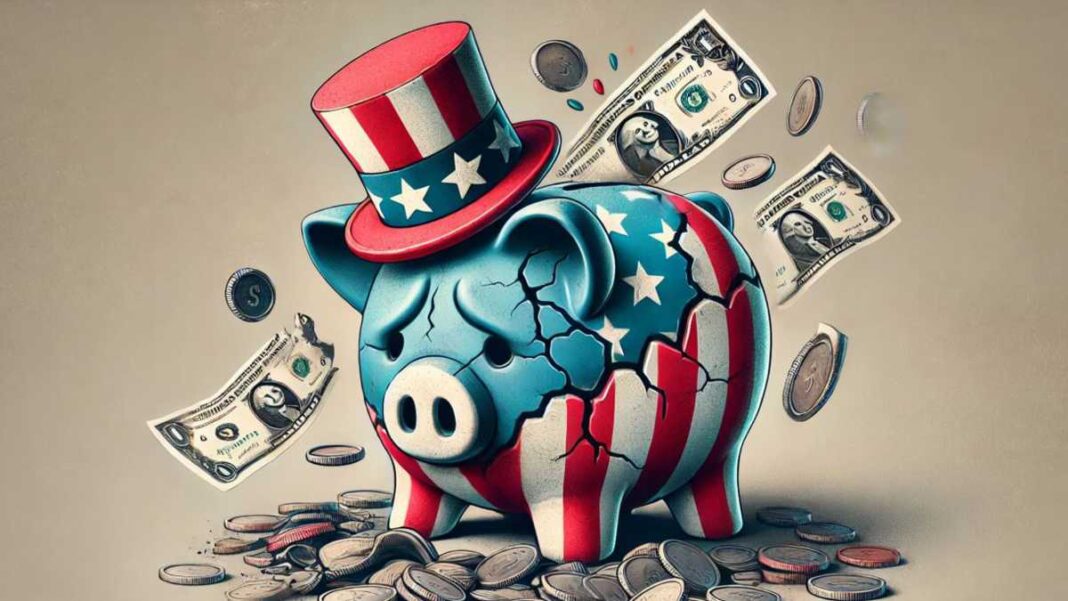The case raised profound questions about the right to defend oneself and others and the role of outside influences on jury proceedings.
NEW YORK CITY—The trial of Daniel Penny split many observers into two camps—one passionately for and the other fiercely against the defendant, who restrained Jordan Neely in a chokehold on a New York subway in May 2023 and Neely died.
The first camp brands Penny, who was acquitted of the charges of second-degree manslaughter and criminally negligent homicide, a brave hero who was protecting others from Neely. They say Penny is a victim of overreach by Manhattan District Attorney Alvin Bragg.
The second camp calls Penny a killer with no regard for the value of a poor, ill, homeless man’s life.
Representative of the view showing disdain for Penny were public comments made by Rep. Alexandria Ocasio-Cortez (D-N.Y.), whose district includes part of Queens. Before the trial began, she called him a “murderer,” and after the verdict, she criticized him again, saying Penny “does not have remorse about taking another person’s life.”
Defense lawyers, who unsuccessfully moved for a mistrial, complained to Judge Maxwell Wiley about the “circus-like” atmosphere fostered by loud, angry, sometimes menacing protesters on the street outside the courthouse.
Protesters had made threats against their client and against jurors if they didn’t vote to convict, defense lawyer Thomas Kenniff told the judge.
The trial began in late October and ended with Penny’s acquittal on Dec. 9. Despite the acquittal, the case raises questions about the challenge of holding a fair and impartial trial in an age of 24/7 social media saturation.
David Dorfman, a professor of law at Pace University in New York City, said he believes the “toxic social media environment” and the politicization of the justice system made it difficult to have a fair trial, in a case that the government never should have brought in the first place.
Divine Pryor, executive director of the Center for NuLeadership on Urban Solutions, said he doesn’t think the 24/7 coverage of the Penny case or the street protests exerted undue influence on the course of the trial or the outcome.
“There are always non-evidentiary pressures that emerge during any high-profile trial that come from arenas outside the judicial process, and they are usually shaped and guided by the media,” he said. His organization, a New York-based nonprofit, advocates for criminal justice reform.









